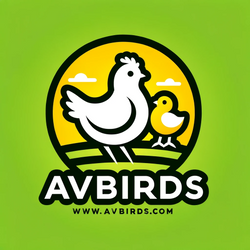
The fast growth of jumbo Peking ducks has become a notable trend in the poultry industry, revolutionizing the dynamics of meat production. These ducks, renowned for their succulent meat and crispy skin, have undergone significant genetic advancements to accelerate their growth rates. These Peking Ducks Fertile Hatching Eggs can be purchased at www.avbirds.com.
In recent years, breeders have focused on developing strains of Peking ducks that reach market weight at an impressive pace. Traditional Peking ducks typically take around 42 days to reach market weight, but with selective breeding and enhanced nutrition, jumbo Peking ducks have achieved this milestone in as little as 35 days.
This accelerated growth is attributed to a combination of factors, including improved feed formulations, optimized living conditions, and selective breeding practices. Jumbo Peking ducks are bred for increased muscle mass and efficient feed conversion, ensuring that they rapidly attain the desired market weight.
However, the rapid growth of these ducks comes with a trade-off, particularly in terms of food consumption. Jumbo Peking ducks have a considerably higher feed intake compared to their traditional counterparts. The focus on achieving market weight quickly necessitates a carefully balanced diet to ensure optimal growth without compromising the ducks' health.
Market weight for jumbo Peking ducks typically ranges from 5 to 7 pounds, making them ideal for the meat market. This weight range is a result of the strategic breeding and nutritional plans implemented by farmers and producers. The demand for these larger ducks has surged as consumers seek meatier and more substantial poultry options. If they are not kept on a diet, the males reach at least 11 pounds and the females 9.5 pounds in 90 days.
The fast growth of jumbo Peking ducks represents a significant advancement in poultry farming, meeting the demand for larger and meatier birds. However, this growth comes with a careful balance of nutritional management to ensure the ducks reach market weight swiftly while maintaining their overall well-being. As the poultry industry continues to evolve, finding sustainable solutions to address the challenges associated with rapid growth remains a crucial aspect of responsible farming practices.

